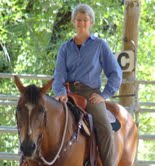May 2021
How to Avoid Digestive Ulcers
Holistic Horsekeeping
How to have a healthy happy horse.
Volume 26, Number 5
=*=*=*=*=*=*=*=*=*=*=*=*=*=*=*=*
In This Issue:
1. How to Avoid Digestive Ulcers
2. Develop a Better Relationship with Your Horse
=*=*=*=*=*=*=*=*=*=*=*=*=*=*=*=*
1. How to Avoid Digestive Ulcers

Equine digestive ulcers are unfortunately common. I believe the main cause is stress. When the horse is stressed his digestive system does not work efficiently. Stress means fight or flight. No horse is going to properly digest food when he feels threatened. Lots of things are threatening to a horse. Being away from his buddies, traveling in a trailer, being in a stall, going into a new arena, or changing ownership are just a few of the scary things horses deal with.
So what happens when a horse is stressed? He shuts down his digestion so he can be ready to fight or flee. He doesn’t do this on purpose. It is a part of his autonomic nervous system. The sympathetic part of the nervous system kicks in during stress. In order to properly digest food the horse needs to be operating more in the parasympathetic or rest and digest part of the autonomic nervous system.
The shift between sympathetic and para sympathetic is not an on/off switch. It is more of a gradient where the body is more stressed or more relaxed but ready to shift to more in either direction if needed. What can happen if stress is prolonged is more of a steady state of sympathetic tone. When this happens the body begins to show signs of chronic stress. Poor digestion initially and eventually, ulcers. Poor digestion also sets the horse up for decreased immunity, poor quality hooves and connective tissue/joint issues.
To avoid this destructive pattern we need to address the stress that causes ulcers. Enter the endocannabinoid system. This is the system that is responsible for balance in all the body systems, including the nervous system. When the endocannabinoid system is working well the horse can easily shift more to sympathetic or parasympathetic. He can perform when he needs to and relax and enjoy his dinner when he is back in his stall.
For many horses the endocannabinoid system is not functioning well. Extreme or chronic stress can deplete this system of the natural cannabinoids the body normally makes. Luckily, some plants contain phytocannabinoids that can help replenish the body’s own supply of these critical compounds. Hemp is high in phytocannanoids. Hemp is high in cannabinoids such as CBD but low in THC, the main component of marijuana. Hemp is safe and most horses really like it.
I use a specific hemp product that is processed for absorption directly through the mouth so it is able to get into the system easily and quickly. I use Focus daily for horses showing mild stress or those that only seem stressed by certain things. For horses with severe signs of stress and anxiety I use Calm. Calm has hemp but also has components that help replenish neurotransmitters like serotonin. I give both in very low amounts morning and evening. I feel these products do so much to help the horse stay balanced so his digestive system can function normally.
I also give a probiotic/algae blend daily for foundational nutritional and digestive support. I never want a horse to experience the pain of a digestive ulcer. I want to be proactive in prevention. Even when we do our best to support our horses, they will be stressed by the things we ask them to do. They are so willing to do for us that it seems only fair to do all we can to keep them comfortable.
2. Develop a Better Relationship with Your Horse

By learning about your horse’s temperament type, you can develop a better relationship with and understanding of your horse. We have lots of resources to help you discover what type your horse is and what the special needs of that type are. You will find lots of information on the Horse Temperament website, including an online course, help from temperament consultants, balancing formulas, and books/audios. Then check out the “5 Element Personality” sections of articles on our blog and the Intro to 5 horse types and temperaments on Holistic Horsekeeping.
++++ Copyright | Getting On and Off the List ++++
Unless otherwise attributed, all material is written and edited by Madalyn Ward, DVM. Copyright (c) 2021 HolisticHorsekeeping.com and Madalyn Ward, DVM. All rights reserved.
If you like the material in this newsletter please let your friends know about it. You may reprint material in other electronic or print publications provided the above copyright notice and a link to http://www.holistichorsekeeping.com is included in the credits.
You can get off this list by sending an email to info@holistichorsekeeping.com.
When you forward this material, please send the entire newsletter. Thanks!
Please also enjoy all of Dr. Ward’s web resources:
http://www.holistichorsekeeping.com
http://www.horsetemperament.com
http://blog.horseharmony.com
https://www.facebook.com/HolisticHorsekeeping
https://www.facebook.com/HorseHarmony
Twitter: madalynward